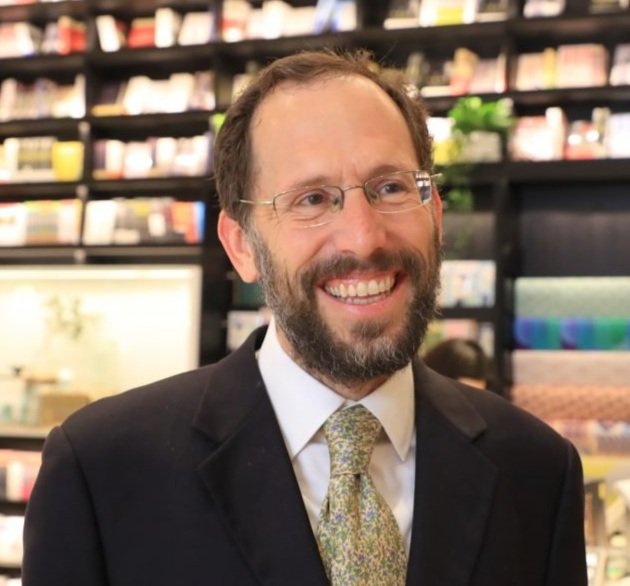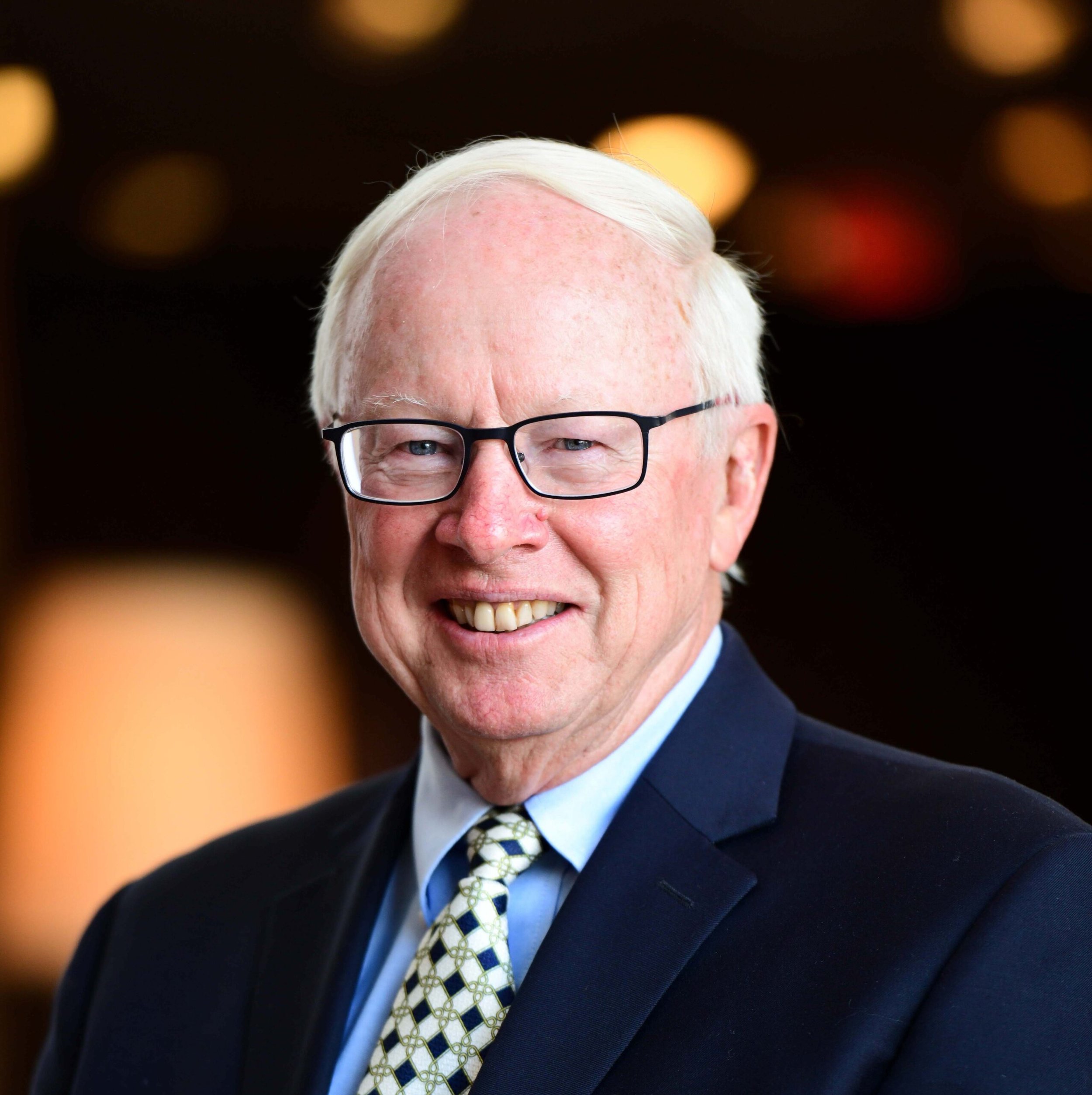April 2023 Interfaith News Roundup
by Paul Chaffee
The Interfaith News Roundup is a monthly publication of The Interfaith Observer. Paragraph by paragraph the Roundup summarizes major religion/interfaith stories that are underreported. Each paragraph is linked to the full story it introduces.
If you’d like to receive the Roundup monthly, you can sign up for our mailing list here.
Interfaith Steps Forward
Rabbi Yakov Nagen — Photo: Ohr Torah Stone
Occasionally, someone from the wisest among us will unpack a truth with a zinger, perhaps with a question. Regarding interfaith, for instance. In the Jerusalem Post Rabbi Yakov Nagen notes, “If I believe that my religion is a true religion and that my God is a true God, and you are following the false religion or the false god, our identities could set us against each other.
“But if I believe the same God that I believe in, that I love, that I pray to, and I believe loves me, is the same God that loves you– that you are serving and to whom you are praying – this allows us to have a point of connection. Do our identities set us against each other or do our identities connect each other?” Or, one might add, “Is God bigger than your conception of God?” Nagen has an international reputation for being able to build relationships among those who disagree with each other.
Here’s your good-news-story-of-month. Some 800 Christian, Jewish, and Muslim congregations are purchasing bundled, discounted medical debt from people living below the poverty line. Organized through RIP Medical Debt, the bundling of the debt means that a $1 contribution can mitigate $100 of medical debt. “To date, RIP has abolished $8.5 billion in medical debt and relieved 5.4 million Americans of their unpaid bills.”
The Vatican and the state of Oman have recognized each other diplomatically and will exchange ambassadors, continuing evidence that Pope Francis is steadfastly building global interfaith relations.
Photo: Wikipedia
More Middle Eastern good news. In Abu Dubai the United Arab Emirates have constructed an Abrahamic Family House, a magnificent interfaith complex including a synagogue, a church, and a mosque. Each of the sanctuaries is distinct, but through the use of light, the trio is designed to encapsulate the similarities of the three faith traditions represented.
On a continent where national religious recognition usually means government funding, Austria has been the only European government to recognize Buddhists. Now Belgium becomes the second European nation to give Buddhism official recognition, with access to state funding. Buddhists will join Roman Catholic, Orthodox, Jewish, Anglican, Protestant Evangelical, and Islamic communities.
In the midst of all the public chatter surrounding the Windsor family in the UK and southern California, it is heartening to see pre-coronation King Charles meeting with leaders from various religions and affirming his intention to continue "protecting the free practice of all religious faiths."
Religious Troubles
For some 17 years, a handshake agreement left the task of California’s Huntington Beach City Council meeting invocations to the Greater Huntington Beach Interfaith Council. The only guidelines: No proselytizing, no politics, and keep to under a minute. Led by new, rightwing Mayor Tony Strickland, the City Council has accused the local Interfaith Council of politicizing through their invocations and wants them regulated. Without any specific examples, they claimed the clergy offering the prayers were turning them into “political soapboxing opportunities.” Seventeen years of invocations were reviewed. Only two were remotely political. Not a big story, an outlier perhaps, but important enough for those of us in the interfaith arena to sit up and pay attention.
High school libraries in Utah are turning into the latest example of conservative parents obsessed with banning books that mention sexuality. As a counter measure, a disgruntled parent has petitioned authorities to ban the Bible. The request states that “Incest, onanism, bestiality, prostitution, genital mutilation, fellatio, dildos, rape, and even infanticide,” can be found in biblical texts, listing examples.
Higher education is facing similar struggles. Teaching about race at conservative Christian colleges has become a dangerous activity for professors, even for those who’ve been doing so for decades.
Lawmakers in Delaware, Vermont, and Washington are seeking to end the “clergy-penitent privilege,” a privilege that saves Roman Catholic priests, among others, from being legally required to report child abuse they may learn about in confession.
Photo: PxHere
The Tennessee House of Representatives has passed a law that permits state officials to refuse service to couples seeking marriage if the marriage conflicts with the official’s personal beliefs. The threat extends to same-sex couples as well as interracial and interfaith couples.
Hard to believe, but it’s true: South Carolina lawmakers are considering legislation that would define a fertilized human egg at the point of conception to be a human being and would make women who have an abortion subject to the death penalty. This is the latest attempt state legislators are taking to oppose abortion in a nation where the majority of citizens believe in some form of abortion. Their work helps guarantee that the matter will be front and center in next year’s elections.
The United States is by no means the only country with conflicted situations grounded in religious differences. Cardinal Gerhard Ludwig Mueller, a conservative in the generally liberal German Catholic hierarchy, has called on Pope Francis to discipline and perhaps fire his colleagues who are calling for a discussion of “a series of reforms, including on homosexuality, women priests and priestly celibacy.”
China is continuing its squeeze on organized religion. Henan province has rolled out a requirement that those attending Christian, Muslim, or Buddhist services must make reservations to attend their own congregations.
Photo: Wikimedia
In India, we hear of a sad new sign of what is happening politically/religiously: communities where Hindus and Muslims have lived together happily are now becoming ghettos, with Muslims moving into Muslim conclaves and Hindus doing the same with their faithful. Also, anti-conversion laws are sweeping across India, with Christians, in particular, being accused of proselytizing “through allurement, use of force and fraudulent means.” In Africa, same-sex persecution is raging, except in the Republic of South Africa.
Globally, the aggressive relationship between religion and government in Nicaragua takes the cake. Under the leadership of President Daniel Ortega (once a progressive, now a dictator), the state has become a fierce opponent to religion – primarily aimed at Catholic and Evangelical Christians. The offence? Anyone who has dared question or criticize the government. Leaders have been exiled or, if they refuse to leave the country, imprisoned. Police have been attending worship services dressed as civilians to detect any criticism of the government.
News & Newsmakers
Donald Miller – Photo: Center for Religion and Civic Culture
At a time when religious leaders and organizations seem plagued with stories of corruption and failure, along comes a refreshing idea. University of Southern California’s Professor Donald Miller is studying spiritual exemplars, individuals who are truly making a positive difference in people’s lives. Study success rather than failure? What an notion!
A quick google of Pope Francis will surface a small library of recent articles about the tenth anniversary of his papacy. One of the most interesting comes from the National Catholic Reporter. It published an extended article by Brian Farga titled “For 10 years, Pope Francis outlasts the conservative resistance.” It surveys the consistent criticism of the Pope and his measured approach in responding.
We’re often told, if you really want to know about someone or group, “follow the money.” One of the Pope’s most impressive accomplishments, though little noticed, is tightening Vatican fiscal policy and property management. AP reports that Francis “has essentially nationalized all assets and property owned by Vatican departments and affiliated institutions, declaring them to be sovereign patrimony owned by the Holy See and not any individual or office. Now, will accountability follow?
Eboo Patel – Photo: Interfaith America
Pope Francis is arguably the world’s most important interfaith voice. Today the much younger Eboo Patel has become the most important American interfaith champion. His five books are important reading for anyone interested in the subject. Now Kimberly Winston has written a short bio of this Muslim from Chicago, the founder of Interfaith Youth Core, now Interfaith America. It provides a biographical overview of Patel and his achievements, including building active relationships with 700 US colleges and universities.
Give a guess ... Besides Colorado Representative Lauren Boebert, who decries the US reparation of church and state, claiming that he has been placed in his role of considerable responsibility by God? No, not Donald Trump, but New York City Mayor Eric Adams. No surprise, he’s generating considerable comment from NYC’s interfaith community.
For those who worry about the growth of right-wing religion, new data is in. As recently as 2006, 23% of Americans were white evangelical Protestants. The most recent studies, per the Pew Research Center, suggest that the figure today stands at 13.6%, and skews older than the population at large.
Randall Balmer, best known for his study of Evangelical Christianity, has published Passion Plays: How Religion Shaped Sports in North America. Balmer argues that sports have eclipsed religion as the nation’s main pastime.
Photo: Wikipedia
At the Druk Amitabha monastery in Kathmandu, the capital of Nepal, 300 Buddhist nuns practice meditation and the martial arts. If you can make it through the New York Times’ paywall, the photos are as extraordinary as the story of the Kung Fu nuns.
We began this Roundup with wisdom from Rabbi Yakov Nagen. Equally valuable is “The One Thing that Unites the World’s Religions” by Robert Sellers, Professor Emeritus of theology and missions. It offers an excellent compact introduction to the study of world religions and spirituality and should be required reading for any intro to religion course. Don’t just read it. Print it! Share it! (It’s about ethics, and it’s liberating.)
Header Photo: PxHere









